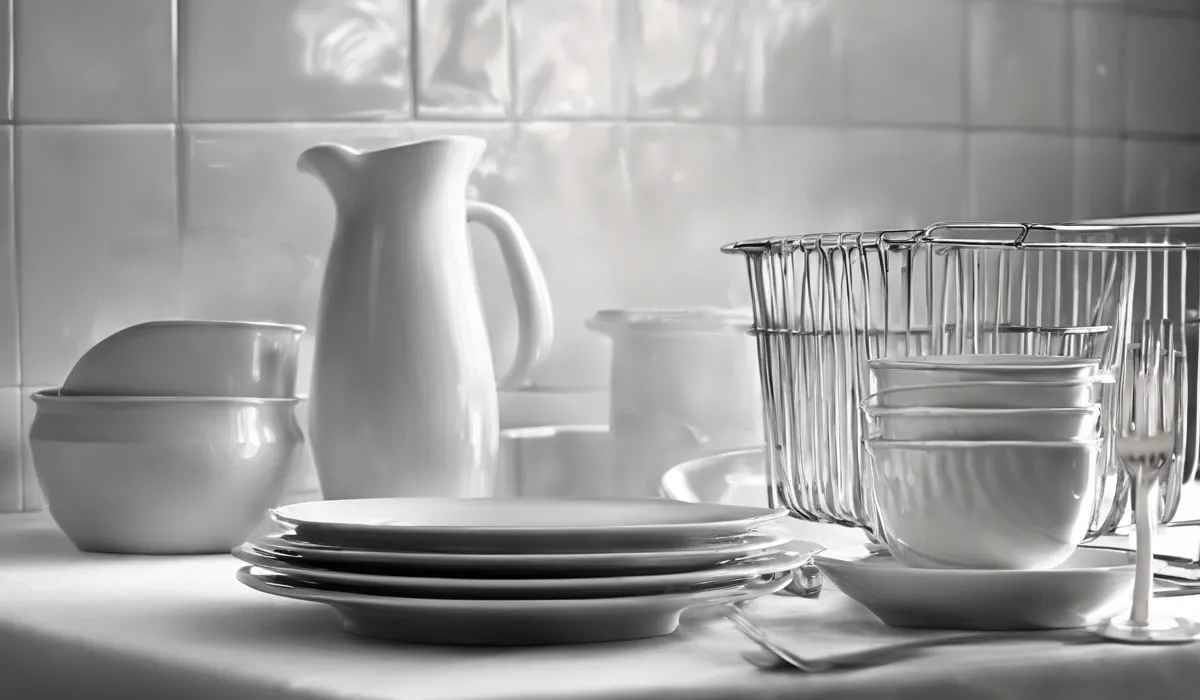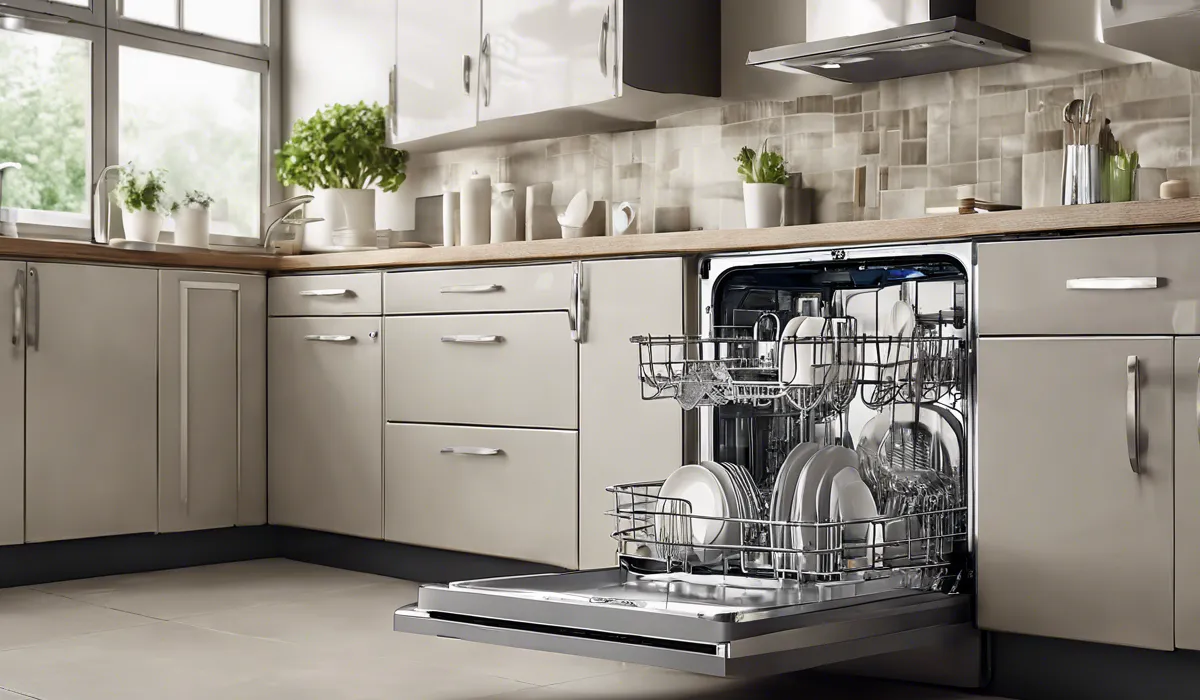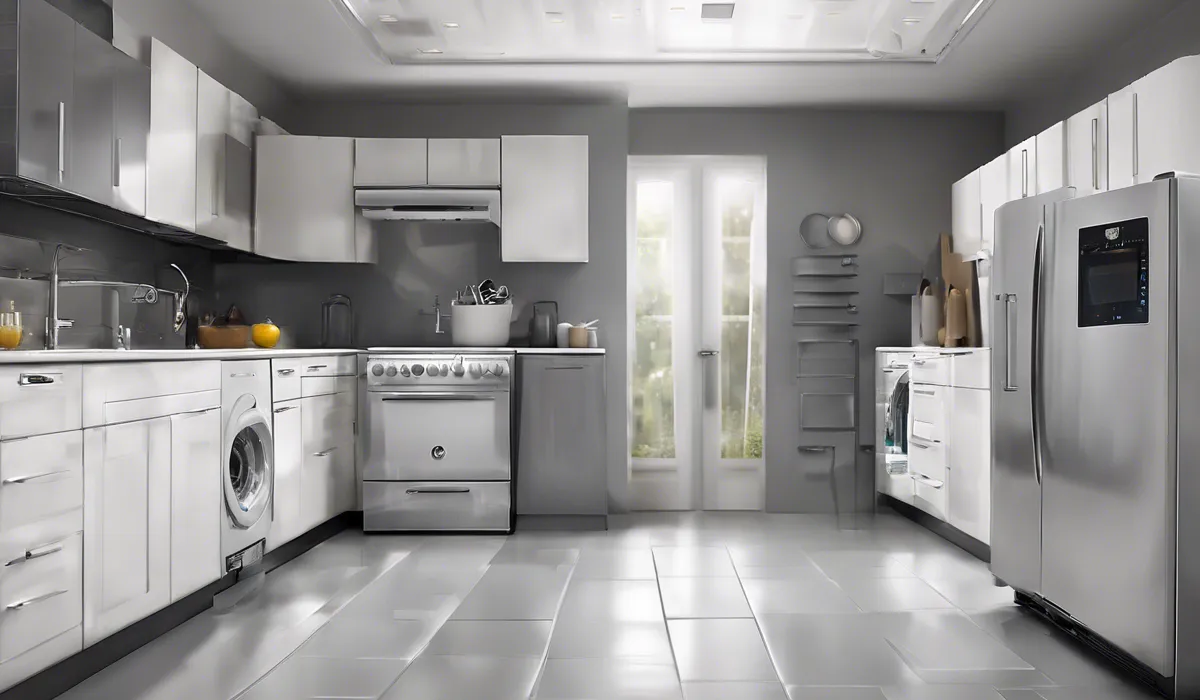Does Dishwasher Cause Crazing? Unveiling the Truth!
Dishwashers can cause crazing in dishes due to high temperatures and harsh detergents. Rapid heating and cooling contribute to the fine cracking on glazed surfaces. To prevent crazing, use dishwasher-safe dishware and milder detergents.
Understanding Crazing in Dishware

What Is Crazing?
Crazing refers to the network of fine lines or cracks that can appear on the glazed surface of dishes.
These lines may look like spider webs and are usually more visible when the dish is held up to the light. Crazing does not mean the dish is broken, but it can affect the appearance and potentially the strength of the dishware.
Materials Prone to Crazing
Ceramic and porcelain dishes are especially susceptible to crazing because of their glazed surfaces. The glaze is a glass-like coating that can expand and contract differently than the body of the dish, leading to crazing over time.
Common Causes of Crazing
Crazing can be caused by a variety of factors, including environmental stressors such as temperature changes or physical impacts.
The quality of the glaze and the compatibility between the glaze and the clay body are also key factors that can lead to crazing.
Contributing Factors to Crazing
Aside from the material and manufacturing process, external factors such as the use of harsh chemicals, sudden temperature changes, and even the age of the dishware can contribute to the development of crazing.
The Dishwasher’s Role in Crazing

How Dishwashers Operate
Dishwashers clean by spraying hot water and detergent onto the dishes. The high temperatures and moisture create an environment that can contribute to crazing, especially if the dishware is not specifically designed to withstand such conditions.
Temperature and Pressure Fluctuations
The heating and cooling cycles in a dishwasher can cause stress on dishes. Rapid changes from hot to cold can lead to the expansion and contraction of the glaze at a different rate than the body of the dish, increasing the risk of crazing.
Impact of Dishwasher Detergents
Many dishwasher detergents contain harsh chemicals that can wear down the glaze on dishes over time. This chemical erosion can make the glaze more susceptible to crazing.
Link Between Dishwashers and Crazing
Studies have shown that the regular use of a dishwasher can lead to an increased incidence of crazing, especially for dishes that are not designated as dishwasher-safe.
The combination of heat, pressure changes, and chemicals can accelerate the crazing process.
Preventing Crazing in Dishwasher Settings

Best Dishwasher Loading Practices
To minimize the risk of crazing, it is important to load dishes properly. Ensure there is enough space between items to prevent them from knocking into each other and causing physical damage.
Optimal Dishwasher Settings
Using the correct dishwasher settings can help reduce crazing. Lower temperature settings and gentle wash cycles are less stressful on dishes. This can be particularly important for delicate items.
Alternative Cleaning Methods
Hand washing with mild detergents can be a safer cleaning method for dishes prone to crazing. It allows for more control over the temperature and handling of the dishware.
Longevity Tips for Dishes
To maintain the longevity of your dishes and prevent crazing, use gentle cleaning products, avoid sudden temperature changes, and choose dishwasher-safe dishware whenever possible.
Regular checks for early signs of crazing can help you take preventive action.
FAQs About Dishwasher-Caused Crazing
Can using a dishwasher cause crazing in my dishes?
Yes, dishwashers can cause crazing in dishes due to high temperatures and the use of harsh detergents.
What contributes to crazing when using a dishwasher?
Rapid heating and cooling cycles within the dishwasher contribute to the fine cracking known as crazing on glazed surfaces.
How can I prevent crazing in my dishes when using a dishwasher?
To prevent crazing, ensure you use dishwasher-safe dishware and opt for milder detergents.
Is crazing from a dishwasher permanent?
Yes, crazing is a type of damage that results in permanent fine cracks on the surface of the glaze.
Can all types of dishes get crazed in the dishwasher?
Not all dishes will craze in the dishwasher; typically, those that are not labeled as dishwasher-safe or are made of delicate materials are more susceptible.
Final Thoughts
Dishwashers can lead to crazing in dishes due to high temperatures and the use of harsh detergents.
The phenomenon of fine cracking, especially on glazed surfaces, often results from the rapid heating and cooling cycles within the machine.
To mitigate this, it is advisable to use dishware labeled as dishwasher-safe and opt for gentler cleaning agents.





